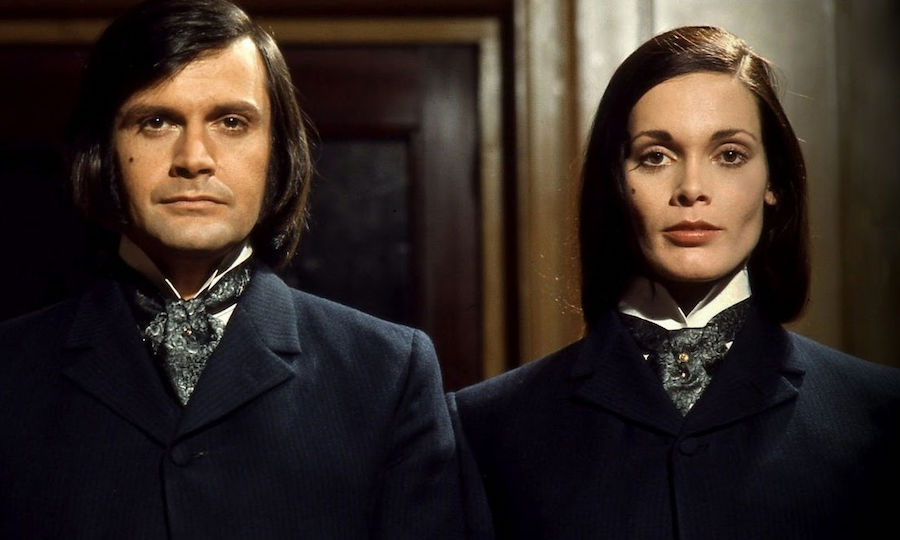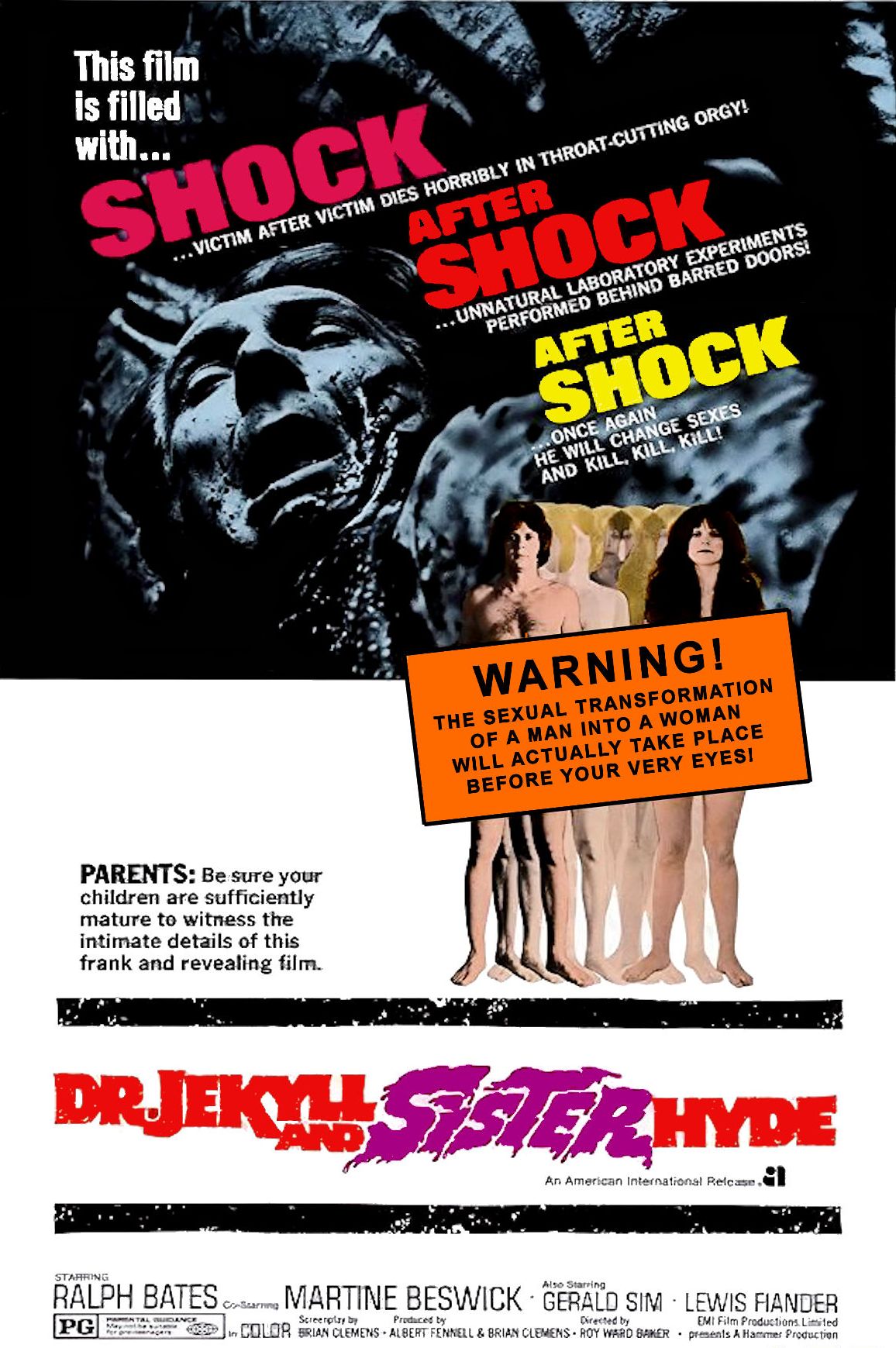|
Dr. Jekyll and Sister Hyde Film review by Thomas M. Sipos |
|
MENU Books Horror Film Festivals and Awards
Pursuits
Blogs Horror Film Festivals and Awards
Other
|
Dr. Jekyll and Sister
Hyde (1971, director:
Roy Ward Baker; script:
Brian Clemens;
cast: Ralph Bates, Martine Beswick, Susan Brodrick,
Lewis, Fiander)
Susan (Susan Brodrick), the upstairs neighbor, begins courting Jekyll. It should be the other way around, but Jekyll is no Casanova. Jekyll likes Susan, but he's also beginning to like transforming into Hyde. It's addictive. Jekyll fondles the dresses he bought for "his sister." And as Hyde, he/she begins to seduce Susan's brother, Howard (Lewis Fiander). So Jekyll/Hyde is dating a sister and her brother. Essentially, it's a ménage à trois involving two siblings and a genderfluid bisexual. Très kinky, n’est-ce pas? Surprisingly (or perhaps not?), Dr. Jekyll and Sister Hyde enjoys a cult following among gay audiences. It's so transgressive. Mainstream horror fans like it too. It's original and fun. It's bloody and salacious by the standards of 1971, but its gore and nudity would be considered tame before the end of the decade. Today the film is more admired for its camp than its scares.  The casting is excellent. Apart from being talented and charismatic actors, Bates and Beswick share the same sharp features, pale skin, and dark hair. They look like brother and sister. They also look like one might have transformed into the other. (The above is a publicity photo; as they're playing the same character, Bates and Beswick never actually appear together in the film.) But does the film have a message? One poster from the era promised ... Shock After Shock After Shock ... Unnatural Laboratory Experiments Performed Behind Barred Doors! ... Once Again He Will Change Sexes and Kill, Kill, Kill! ... Warning! The Sexual Transformation of a Man Into a Woman Will Actually Take Place Before Your Very Eyes! ... PARENTS: Be sure your children are sufficiently mature to witness the intimate details of this frank and revealing film. ... That's not very woke. Now, it's doubtful that director Roy Ward Baker or screenwriter Brian Clemens intended a serious criticism of transgender politics. Dr. Jekyll and Sister Hyde is pure exploitation film, its vintage poster using the lurid language of a carnival barker to lure people into the freak show tent. It's not an outright attack. But neither is it very respectful. Yet there is a message, that of classic horror, as defined by King and Jones and Mary Shelley. It's the message of Frankenstein. Do not play God. Do not tamper with His creation. You will suffer and fail. Jekyll changed his sex but never became fully female. The transformation was always temporary, and thus incomplete. And in his futile attempts, he created much misery and death for himself and others.

 |
"Communist Vampires" and "CommunistVampires.com" trademarks are currently unregistered, but pending registration upon need for protection against improper use. The idea of marketing these terms as a commodity is a protected idea under the Lanham Act. 15 U.S.C. s 1114(1) (1994) (defining a trademark infringement claim when the plaintiff has a registered mark); 15 U.S.C. s 1125(a) (1994) (defining an action for unfair competition in the context of trademark infringement when the plaintiff holds an unregistered mark).font>/font>


 Stephen King famously said that horror is a conservative genre,
because it's about people struggling against attacks on normalcy
and social order. Catholic cultural critic
Stephen King famously said that horror is a conservative genre,
because it's about people struggling against attacks on normalcy
and social order. Catholic cultural critic